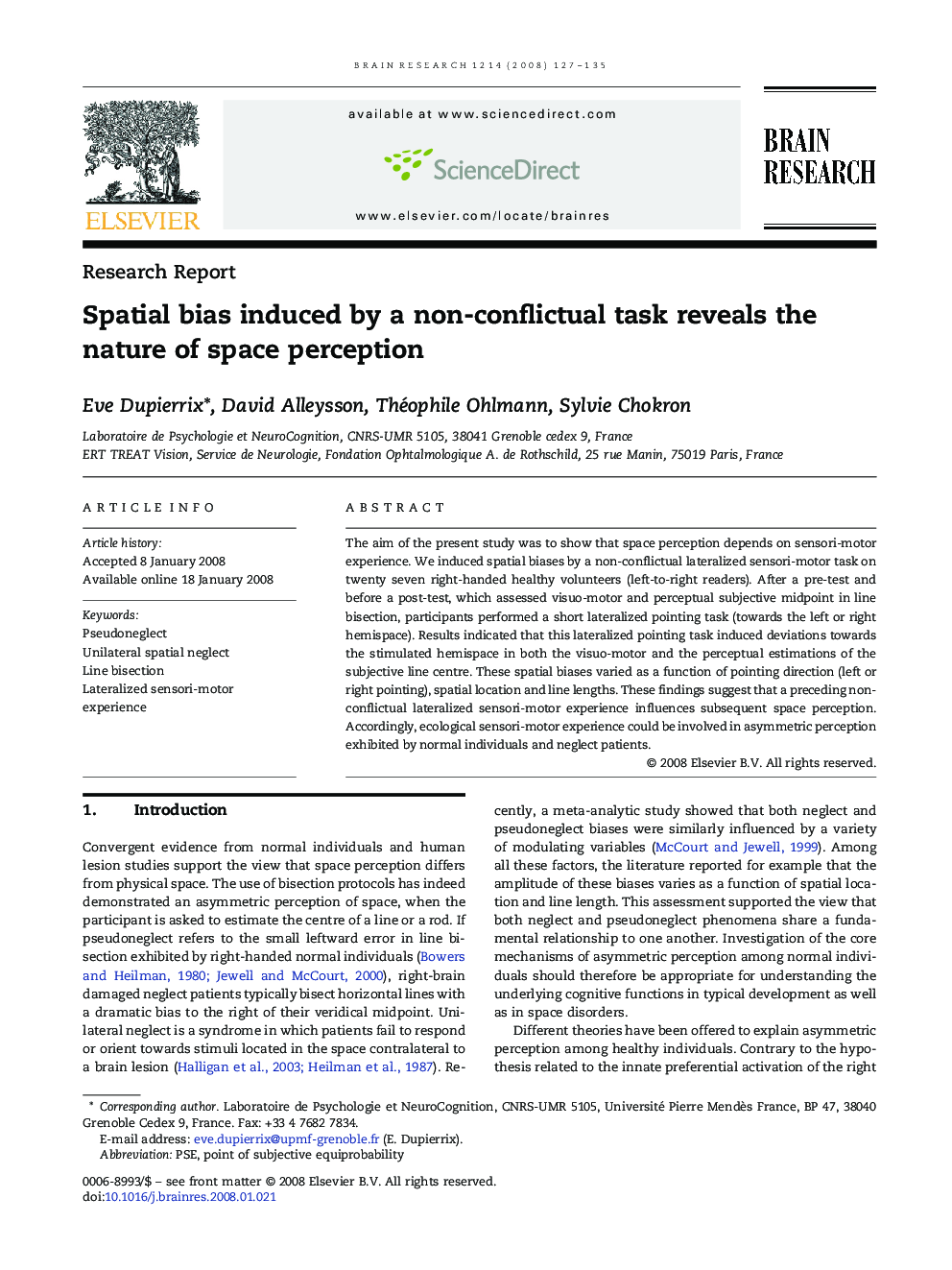| Article ID | Journal | Published Year | Pages | File Type |
|---|---|---|---|---|
| 4329541 | Brain Research | 2008 | 9 Pages |
The aim of the present study was to show that space perception depends on sensori-motor experience. We induced spatial biases by a non-conflictual lateralized sensori-motor task on twenty seven right-handed healthy volunteers (left-to-right readers). After a pre-test and before a post-test, which assessed visuo-motor and perceptual subjective midpoint in line bisection, participants performed a short lateralized pointing task (towards the left or right hemispace). Results indicated that this lateralized pointing task induced deviations towards the stimulated hemispace in both the visuo-motor and the perceptual estimations of the subjective line centre. These spatial biases varied as a function of pointing direction (left or right pointing), spatial location and line lengths. These findings suggest that a preceding non-conflictual lateralized sensori-motor experience influences subsequent space perception. Accordingly, ecological sensori-motor experience could be involved in asymmetric perception exhibited by normal individuals and neglect patients.
